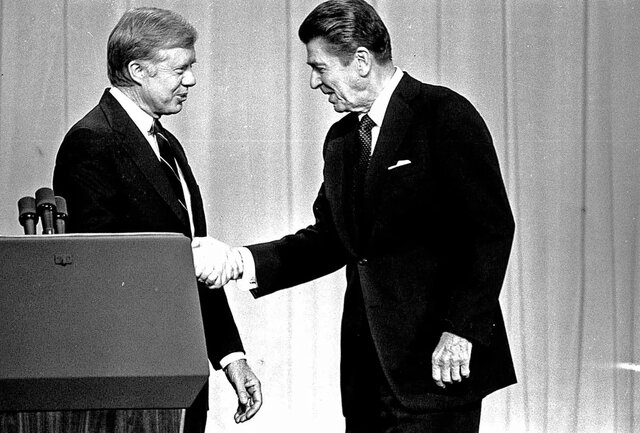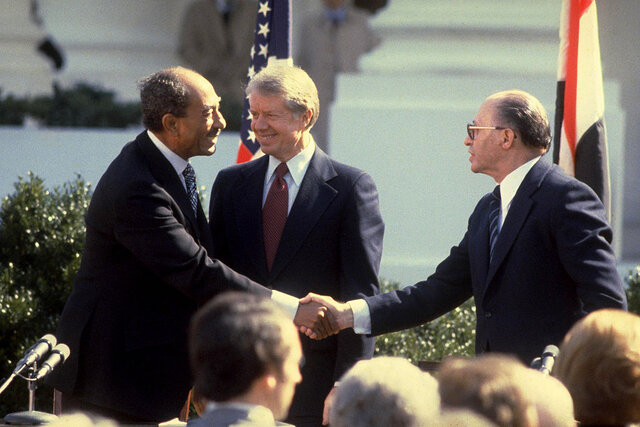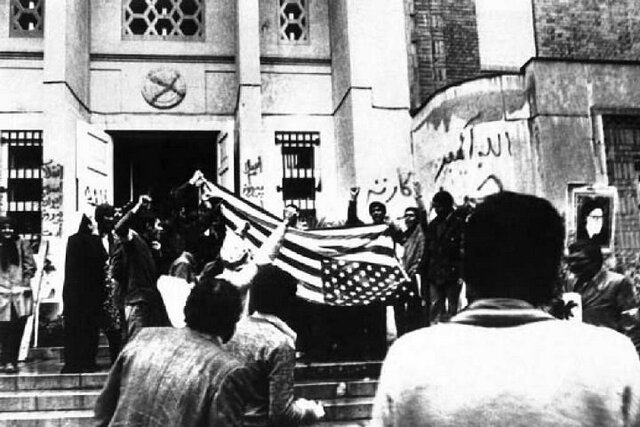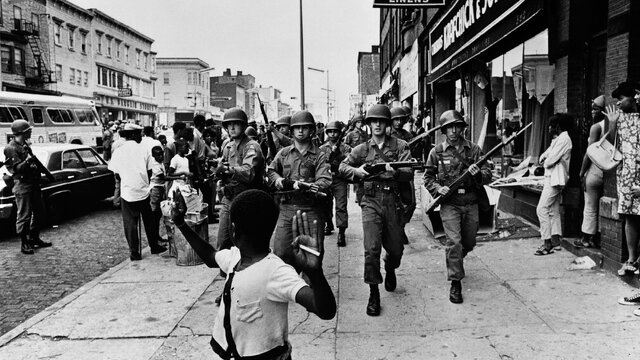Time: Solving the hostage crisis with Iran could not save Carter either
After the death of former American President Jimmy Carter, the American magazine wrote that solving the “hostage crisis” with Iran would not help him stay in power due to his unpopularity and his “unconventional” style of statecraft among American politicians and its people.
According to RCO News Agency, one of the questions raised in contemporary American politics is whether former American President Jimmy Carter, in the first round of his presidency, would have guaranteed the release of the embassy staff in Iran, who during the Islamic Revolution were accused of Had the spy been arrested, would he have won the election again?
As usual, it is impossible to prove or disprove historical hypotheses to the contrary, but in this case, while the idea that the release of the hostages might have completely changed the course of the election race that year, a closer look at history shows that Carter’s political problems go beyond the crisis. Iran was created.
In recent media reports, it has been suggested that Republicans, including John Connelly, the former US Treasury Secretary, intervened in the crisis caused by the capture of a spy den in Iran in 1979, in favor of Ronald Reagan’s election campaign in 1980 and prevented Carter was re-elected.
In the report published in Time magazine after Carter’s death, it is stated with the following introduction: One of the best contemporary narrators of Carter’s CIA conflicts was “Peter Jay”, Angis’ ambassador to America in 2 years of the presidency of the 39th American president. Jay, who was a journalist and a keen observer of the events of the time, revealed Carter’s political ups and downs through his secret trips to London.
Race riots in the 1960s in America
Carter’s victory in the US elections in the midst of domestic turmoil
Jay’s first telegrams from Washington in 1977 described the unique circumstances that made it possible for a southern governor to win the presidential election. According to him, for more than a decade since the assassination of former US President John F. Kennedy, the impact of successive challenges from anti-racist riots to assassinations, Vietnam and Watergate, “the elements of self-esteem, morality, invincibility, stability and progress” It had deeply shaken the American.”
According to Jay, Carter’s victory “clearly represented the desire of the American people for a new beginning.” After enduring misery and constant hardship, Americans were ready for a new and different experience.
It is further stated that the new president came to the White House with a combination of unique personal qualities: impeccable morals, a sensitive, narrow-minded and dry mind, as well as a commitment to tackling all difficult problems at once. He had the shortcomings of previous presidents from both parties.
According to Jay’s narrative, Carter’s main virtue was his “boldness” in recognizing major political problems and presenting solutions that were “influenced by his understanding of national interests and with little regard for short-term and narrow-minded sectarian and party political considerations.” His usual blunt response when faced with popular belief to avoid political trouble was “don’t move”.

Former US President Ronald Reagan and Jimmy Carter in a televised election debate in October 1980.
Emergence of concerns about Carter’s “individualistic” approach to governance
In another part of this article, referring to the issue of the “Panama Canal Treaty”, which according to him, Carter had recognized that the transfer of the Panama Canal control powers to this country would be more in line with the national interests of the United States. He praised Carter and said that he wanted to take a correct and moral behavior in the leadership of the American nation and choose the right path.
But 2 months later, Jay realized that there were concerns about this unique approach of the American president. In a secret telegram to London titled “Is Mr. Carter in trouble?” It narrates growing doubts about the president’s ability to translate his lofty ideals into political reality.
This telegram showed how quickly Carter, as the President of the United States, had become involved in problems that, ironically, were caused by the same factors that had brought him to power. He entered the American presidency at a time when it had become defective and ineffective.
According to the former British ambassador to the United States, “the disgraceful and violent conduct of the Vietnam War, the Watergate scandal, and the changing structure and behavior of Congress all hampered the work of a perhaps active president.”
The Times wrote: A large group of independent legislators elected in 1974, the “children of Watergate”, sought to reassert the authority of Congress to govern the nation. This attack on the independence and autonomy of the legislative bodies included the members of the president’s own party, who seemed to have no problem with opposing in the White House instead of implementing Carter’s orders in the Congress.
According to Jay, some of Carter’s aides privately acknowledged that when they entered the White House, they had “no idea of the extent of the damage done to the institution of the presidency.”
But he later confirms that not all of Carter’s problems were structural. Instead, “His management of the nation and handling of problems had a complex and unclear quality that made even those who knew him well confused, disappointed, and sometimes annoyed.”

Menachem Begin, Jimmy Carter and Anwar Sadat at the time of signing the Tel Aviv and Cairo compromise
Carter’s troubling flaw; He was not able to understand the external appearance of his decisions and their impact
The former British ambassador to the United States continued his narrations: the president lacked the ability to imagine how actions and events would leave their impact, and it will appear to others who, like Carter himself, were not used to examining all aspects of all issues.
According to him, Carter had a dangerous tendency to think that the reality of things was self-evident about his intentions and goals. Instead of explaining his goals and objectives or promoting policies, he thought “it is enough to have a good reason for politics.”
The report continues: These observations were made when Americans were constantly hearing bad News, especially in the field of the economy. Carter’s spectacular success, culminating in the Camp David Accords in September 1978, merely interrupted this steady process. What Reagan called the “Misery Index,” the sum of inflation and unemployment, was higher during the Carter era than at any other time. The president seemed increasingly powerless to reverse this disastrous practice.
Another part of this article states: By the end of his tenure as British ambassador, Jay’s outlook had darkened considerably. Jay had acknowledged that Carter “is not very popular in America and does not have the full confidence of other world leaders, friendly and unfriendly.” According to Jay, Carter’s short-sighted and “very unorthodox” style of governance, along with his lack of attention and sensitivity to political affairs, was the root of all these problems. “In more than two years as the president of the United States, he could not make everyone understand the virtue and integrity and the necessity of this extreme procedure.”

Capture of the American embassy in Tehran
Solving the “hostage crisis” would not have saved Carter
Referring to the historical incident of the capture of the spy nest in Tehran, which led to the arrest and imprisonment of the American embassy staff in Tehran on 13 November 1957 and the severing of diplomatic relations between Tehran and Washington, The Times wrote: the level of support for Carter when Jay sent his last telegram had sent, it was 29 percent. This level of his popularity and approval among the American people was five months before he was taken hostage in Tehran. Carter’s poll numbers were about the same for the rest of his presidency, except for a temporary spike after the hostage-taking in Tehran that united Americans.
In addition, high interest rates, rising gas prices, and trouble caused by US Senator Ted Kennedy also hurt Carter in 1980. But according to Jay’s observations, the main problem with the 39th president of the United States was doubts about his unusual leadership style and his ability to deal with each of these problems in a way that would be favorable to the public.
The Times wrote in the final part of this article: Would the return of the hostages have changed anything? The evidence suggests that this was probably not the case. Perhaps it is a more compelling hypothesis to suggest that if the Republican efforts to intervene had been made public, they might have generated the public discontent and anger necessary to destroy Reagan’s chance for victory. But whatever happened in those secret conversations, the Reagan campaign was able to successfully do whatever it took to maintain its deniability.
end of message
RCO NEWS
RCO

















